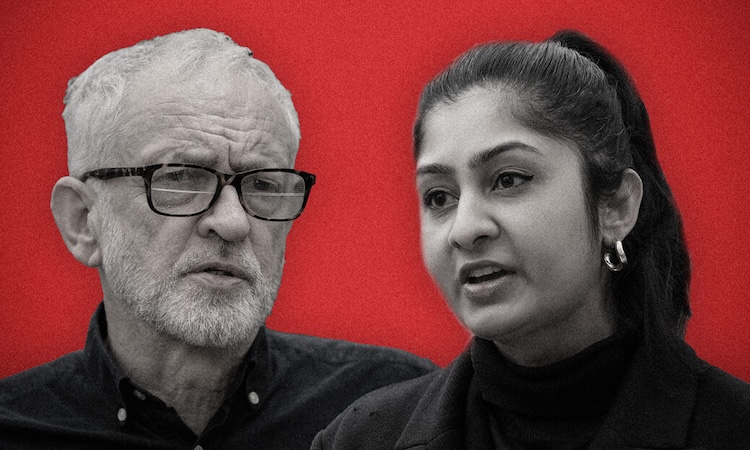In late May, British prime minister Rishi Sunak announced that a general election is to take place on 4 July of this year. This announcement was received with surprise and bewilderment, given that the Conservative party had just suffered catastrophic blows at the 4 May local elections. Why would Sunak call for an election so soon when it was obvious his party would be in for a drubbing?
Many Tory backbenchers questioned the move: “I just don’t understand it,” one MP told the BBC. “The economy is improving. Why not give that more time to bed in?” (Rishi Sunak announces UK general election for Thursday 4 July by Paul Seddon, BBC News, 22 May 2024)
It is worth noting that while the establishment repeatedly attempts to convince us that the economy is improving, ordinary Britons are experiencing the reverse. Wages are not remotely keeping pace with the continued astronomical inflation in the costs of housing, energy and basic necessities. Increasing numbers of households are being pushed into poverty and homelessness.
With the global economic crisis deepening, the war drive intensifying and the Palestine solidarity movement refusing to disappear, British imperialism is seriously worried. The calling of a snap general election by a party that just received a dire vote in local elections is an excellent illustration of the way in which Labour and Tory behave as twin conspirators in safeguarding the interests of British imperialism first and foremost: in preserving this crisis-ridden moribund system no matter what crimes it commits or what suffering it inflicts on workers at home and abroad.
Local elections show troubling trend for the ruling class
Across the recent local elections in England and Wales, Labour gained 186 seats, the LibDems gained 104, independents gained 93, the Green party gained 74 and residents associations (housing-focused candidates) gained 11, while the Tories lost an eye-watering 474 seats. Labour leader Sir Keir Starmer described these as “amazing, amazing results”, while Sunak deemed them “bitterly disappointing”. (‘Work to do’ after local election losses – Rishi Sunak by Sam Francis, BBC News, 6 May 2024)
But Labour’s results were not the sweeping victory they might seem on first glance. A gain of 186 seats was not a resounding endorsement, and the turnout was spectacularly low, indicating a general lack of faith in any of the choices available and in the whole system of bourgeois elections.
Most seats were gained by non-Labour candidates. Independent candidates made significant inroads into councils – especially when the results are compared to those of recent years, during which they lost 89 seats across the country. Moreover, independents won more council seats than Reform and the Green party combined – a clear sign that those who still vote are abandoning their usual avenues of protest voting when given the chance.
Coupled with George Galloway’s return to Parliament, by way of his victory in the Rochdale by-election, where voting patterns also highlighted this shift away from the usual protest vote options, this has clearly left the British ‘uniparty’ in a state of anxiety – demonstrated by Rishi’s hysterical speech about Galloway being an extremist on 1 March. (PM rails against ‘extremist forces trying to tear us apart’ in Downing Street address, Sky News, 2 March 2024)
And so, seeing the gains made by independents, and the increasing public demand for such candidates, Sunak called an earlier-than-expected general election. Not to ensure the victory of the Tory party, but to prevent the further growth of a move away from establishment politics, which is being fuelled by people’s anger over the cost of living and the Gaza genocide in particular, both issues that are turning people away from all the parties of British imperialism.
Tories and Labour alike loyal to the system before all else
Clearly, for the Tories, loyal servants of the bourgeoisie, a Labour victory – even a Labour landslide – is far preferable to the breakdown of the uniparty system. The more time between now and the general election, the more opportunity there would be for anti-genocide candidates to attract campaigners from the ranks of the working class and pull voters away from Tory, Labour, LibDem and Green alike.
The united Tory-Labour front for the perpetuation of imperialist war abroad and the impoverishment of workers at home is anxious to prevent this outcome by any means necessary, whether that be via repressive laws, political policing, media hysteria, the silencing of speech or the sacrificing of a few MPs’ electoral prospects.
The importance of the Palestinian genocide cannot be understated as a contributing factor to the growing political crisis in Britain. Witnessing live footage of innocent civilians slaughtered day after day for eight months has created a mass disgust with and revolt against establishment politicians and media alike.
With the latest horrific atrocities in Rafah (previously described as a ‘safe zone’ for Palestinians) and Nuseirat (where nearly a thousand people were killed or injured in order to rescue four hostages who had not been harmed), it is clear that the list of crimes will only continue to grow – and with it, the number of Britons unwilling to vote for parties who are openly complicit in Israel’s endless bloodshed.
British workers are fed up with austerity, foreign wars and false promises from the ‘uniparty’ – every part of which is complicit in subjecting British workers to endless impoverishment and in destroying our rights, our jobs and our civil liberties.
With less than a month to go until the election, the next few weeks will see the British working class inundated with false promises, endless lectures and an avalanche of emotional blackmail about the importance of voting (and of voting Labour in particular).
But while our rulers are anxious to hector and cajole working-class Brits into harbouring delusions that a changing of the guard in 10 Downing Street can somehow solve all our pressing problems, the whole operation reeks of desperation.
The establishment is trembling. Now more than ever we must be steadfast in building the up forces of anti-imperialist resistance that are needed to bring the whole rotten edifice crashing down.
















